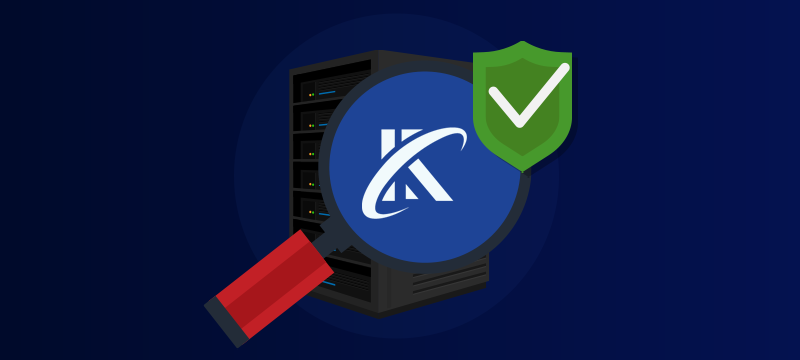VPS has become increasingly popular for businesses that have outgrown their shared hosting plans, delivering blistering performance, acres of storage and exceptional reliability at very low cost. While the benefits of VPS are great, you’ll still need to keep your server and website secure, as with all forms of hosting. Here, we discuss some of the key security measures you should implement.
1. Make use of a firewall
Firewalls are powerful tools that work to keep your VPS secure. When configured correctly, they defend against a wide range of common cyberattacks, including malicious network traffic, such as would-be hackers, and malware, like viruses, Trojans and ransomware, preventing them from getting to your server.
While you can install your own firewall or even use one via a plugin, it is best to use a host that deploys advanced firewalls. At WHUK, not only do our firewalls protect against intrusion and malware; we provide custom rules, application defence and DDoS protection.
2. Disable root username
Default usernames pose a significant security risk because all hackers have to do is crack the password. Having to crack both a password and a unique username makes their task doubly difficult. Linux VPS comes with the word ‘root’ as a default username and virtually every hacker out there will use this at some point when attempting a brute force attack. The way to defend against this is to set up a new admin user with a unique and hard to guess username, and then ensure that the ‘root’ login is disabled.
3. Remember to keep your software updated
Whether it’s your server, PC or smartphone, outdated software can have security holes that hackers exploit. It’s one of the reasons you get so many updates, as new versions contain security fixes. To prevent your VPS from having vulnerabilities, it is important to keep all your software up to date, preferably by setting up auto-updates.
If you have an unmanaged VPS plan, there’s an additional but very important piece of software that you need to update, one you wouldn’t have had to consider with shared hosting, and that’s the operating system, i.e., the version of Linux or Windows your server uses. If you have a managed VPS plan, like at WHUK, we update this on your behalf, so there’s no need to worry about doing it yourself.
4. Keep software well-managed
Aside from updating your software, it is important to manage it well too. Start by ensuring that any apps, themes and plugins you use come from reputable sources. Downloading free software from sites you are not familiar with on the internet increases the risk that the apps have been tampered with and could contain malware. You should also scan your software for infections and uninstall any you do not use.
5. Use 2FA
Strong passwords are always a good idea, but some of the sophisticated brute force tools used by hackers today are powerful enough to crack them. Two-factor authentication creates an additional layer of verification, requiring a special code to be inputted besides the username and password. That code is sent to your smartphone and is only valid for a few minutes, so, unless the hacker has stolen your phone, they won’t be able to gain access even if they have your login credentials.
6. Partition your hard drive
If you partition your VPS hard drive, it allows you to keep your operating system separate from your software, files and database. The benefit of doing this is that it provides an element of damage limitation. If your OS is compromised, it won’t affect your software, files and database, and vice versa.
7. Keep your VPS backed up
The best insurance policy you can possibly have against data loss, whether from cyberattack, hardware failure, software corruption, human error or anything else, is to have an up-to-date backup. This way, even if your entire server is lost, you can restore it quickly and get your business back online. Without a backup, you may have to start from scratch, something that could put many firms out of business.
WHUK Backup Solutions are ideal for VPS, storing everything you need remotely, even your entire server if desired. What’s more, backups are encrypted for security, checked for integrity to ensure they are not corrupted and can be scheduled to occur automatically, at the frequency your business needs.
Conclusion
A VPS is an exceptional piece of hosting kit and should be kept as secure as possible to defend your growing business from all forms of cyberattack and other causes of data loss. Hopefully, the guidance given here will help you put that security in place.
If you require a highly secure, managed VPS hosting plan, visit our Linux VPS or Windows VPS pages.


